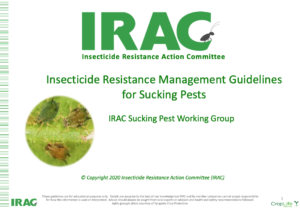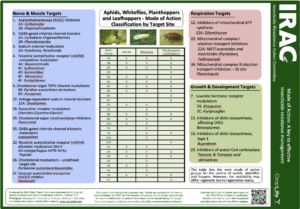Tobacco Thrips
Frankliniella fuscaTobacco thrips (Frankliniella fusca) is a pest of a wide range of economically important plants, including field crops, vegetables, peanuts and ornamentals. Frankliniella fusca can reproduce sexually or parthenogenetically. The lifecycle is completed in 15-25 days, with development from egg, 2 larval stages, pre-pupa, pupae through to adult. Adult thrips are small (1-2mm) and are brown or black in colour.
Adults and larvae feed on new plant growth, with high infestations causing damage through plant disfiguration or growth inhibition. Frankliniella fusca are also known to transmit plant viruses such as Tomato spotted wilt virus (TSWV). North American cotton growers have faced heavy damage to cotton seedlings in recent years with heavy attacks by Frankliniella fusca.
In North America, the combination of seed treatments and foliar insecticide use have been used by growers to stem the damage caused by the thrips to cotton seedlings but reports of resistance to those insecticides have subsequently emerged.
Tobacco Thrips resistance profile
Resistance to neonicotinoid insecticides has been reported in populations of Frankliniella fusca in the Southern United States and particularly in the mid-south. No other resistance has been reported in this species.
| Species | Distribution | Chemical class | Mechanisms |
|---|---|---|---|
| Frankliniella fusca | USA | Neonicotinoids (4A) |

